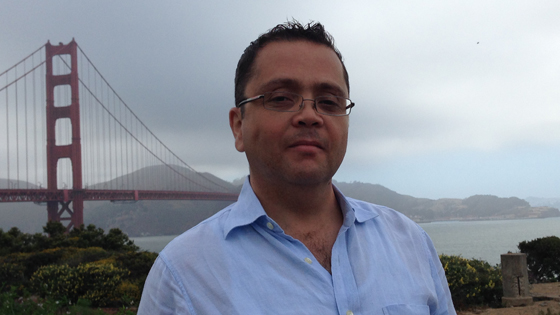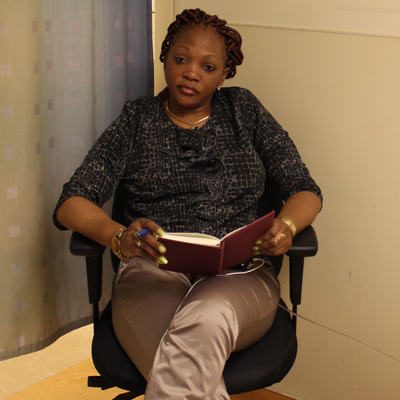
Riyad Elbard, a Thalassemia Major patient, receives monthly blood transfusions at UHN. (Photo: Riyad Elbard)
Donating blood is a matter of life and death for Riyad Elbard.
Riyad, 48, has required monthly blood transfusions virtually his entire life. He was diagnosed with thalassemia major before his first birthday and has been transfusion-dependant since the diagnosis. Riyad requires four units of blood every four weeks.
"When you donate blood, you're providing great humanitarian support for other people and it's a great cause, especially now that many aspects of healthcare rely more and more on blood transfusions and blood products," says Riyad of the
sixth Annual South Central Ontario Hospital Challenge.
The challenge is a friendly competition where hospital staff from 20 participating hospitals compete to donate the most blood.
UHN staff compete for highest number of blood donations
The goal of the challenge, organized by Canadian Blood Services (CBS), is to raise blood donations and awareness of the importance of doing so among hospital staff. UHN is eight weeks into the challenge, which began on June 1. It ends on July 31.
The 20 participating hospitals have so far reached 50 per cent of their goal, with 500 units of blood raised.
UHN staff account for 177 units of the blood donated to date.
"It's great to see people in all parts of the community donating blood," says Riyad. "Having people working in health care donate certainly makes us patients feel that there's a personal touch to our treatment."

Hadel Kaniky was born with Sickle Cell disease, a red blood cell disorder. She began requiring regular transfusions three years ago. (Photo: UHN News)
"I have seen better quality of life for patients."
Hadel Kaniky, 41, was born with Sickle Cell Disease and started receiving blood transfusions in 2012. She now comes into UHN every three weeks to receive two units of blood.
Hadel requires blood transfusions to prevent blockages of blood vessels. This is a major concern for patients with Sickle Cell, a red blood cell disorder with symptoms including severe chronic pain, fatigue and slower growth development.
"When transfusions work, we see dramatic changes happen for our patients," says Heather Gordon, a social worker for UHN's Red Blood Cell Disorders Clinic. "I have seen better quality of life for patients. They are more alert, engaged and active in the community."
This year's challenge competitors include all four of UHN's hospitals and 16 other hospitals in South Central Ontario.
How to help
- Register at the
CBS website by clicking "Register as a Member Online." Enter your personal information and your employing hospital's Partner For Life (PFL) ID number and then click "Finish." The UHN hospitals' PFL ID numbers are:
- Princess Margaret – PRIN010907
- Toronto General – UNIV011216
- Toronto Western – TORO011007
- Toronto Rehab – TORO013276
- Call 1-888-2-DONATE or visit www.blood.ca and make an appointment at your nearest blood clinic.
In order for the blood donation to count towards the Hospital Challenge, donating parties (employees) must register and identify their hospital's PFL ID number, as instructed above, before donating.
If employees have donated any time from January 2015 onwards without providing their hospital's PFL ID number, they can retroactively make it count towards this challenge by simply completing the above-outlined online registration form.
